#Rice Dumpling
Explore tagged Tumblr posts
Text

Jing Nyan gets curious about Rice Dumpling... 🍁🐈
Inspired by something my actual cat has definitely done.. I love that these two both got cat forme
#artists on tumblr#artwork#my art#illustration#fan art#honkai star rail#jing yuan#cat#form#rice dumpling#dan heng#moshi#comic#panels#jing nyan#hsr fanart#hsr#star rail#face smoosh#jingheng#hengjing#ship#ship art#kitty#kity
5K notes
·
View notes
Text

Cold Dragon Young Rapping 🎤🐉
#honkai star rail#dan heng#sesame cake#rice dumpling#hsr dan heng#n4391#my art#fanart#chibi#animation#i can't wait for the new event i'm so excited for dan heng shenanigans...
635 notes
·
View notes
Text


i have two rice dumplings

124 notes
·
View notes
Text
Happy New Year, everyone! I'd say Critter Pick took over my life as of this moment this smol beans--

364 notes
·
View notes
Photo
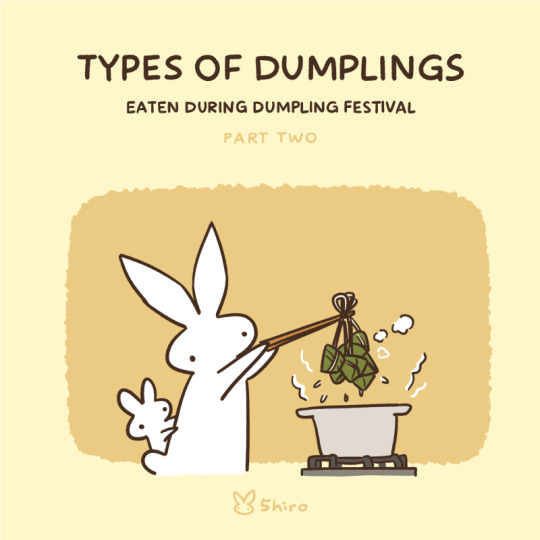
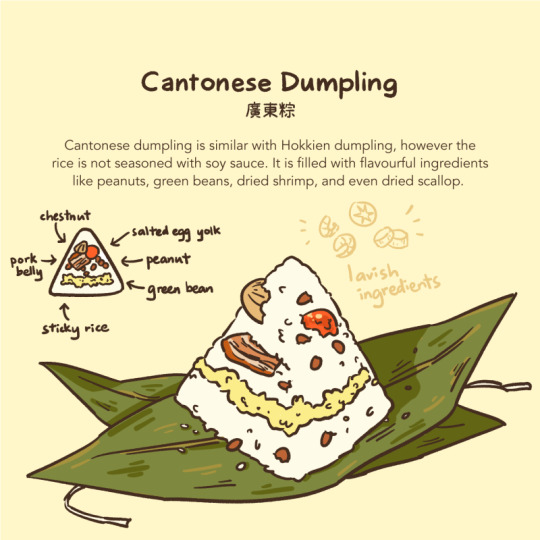
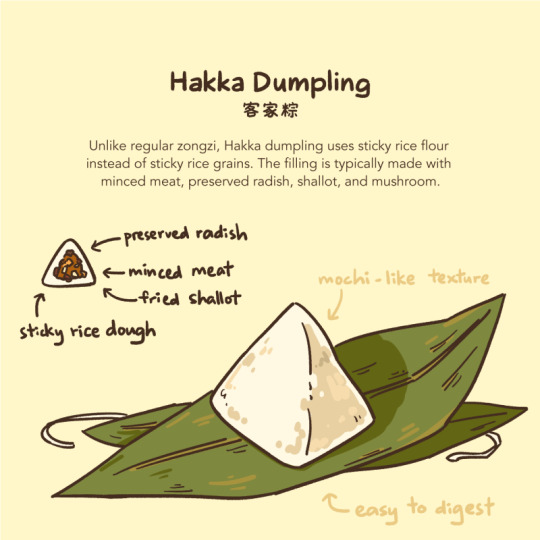
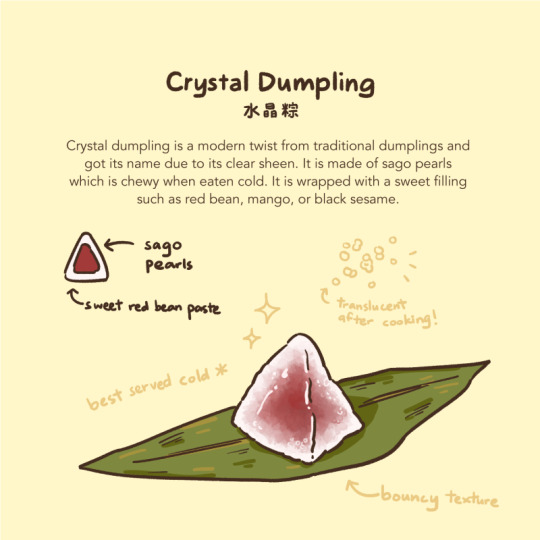
A day late but here's Part 2 of my dumpling guide!
Part 1 is here!
#art#original#illustration#food illustration#food art#rice dumpling#zongzi#dragon boat festival#dumpling festival
751 notes
·
View notes
Text
If all Zong Zi or Rice Dumplings look the same to you, you’re not alone! Zong Zi (粽子) or Bak Chang are a variety of glutinous rice dumplings traditionally eaten by the Chinese during the Dragon Boat Festival (端午节). Here are six types of popular Zong Zi from various dialect and ethnic groups in Singapore.
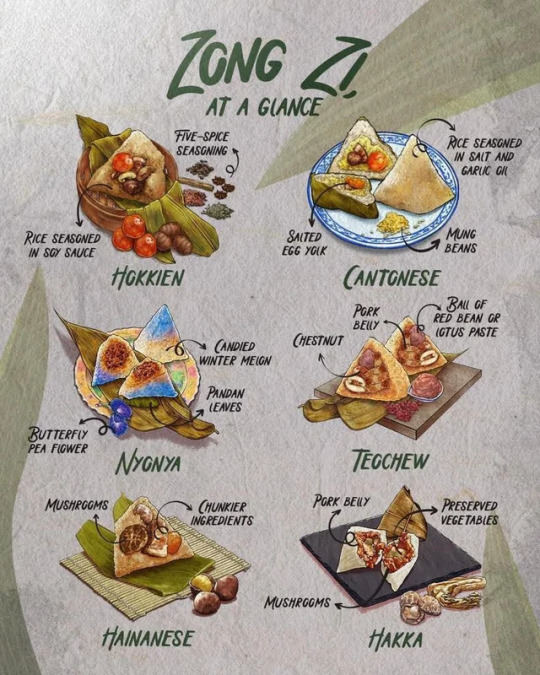
youtube
Hokkien Rice Dumpling (福建咸肉粽) - One of the most common Zong Zi that can be found in markets and stores, the Hokkien Zong Zi is wrapped in bamboo leaves is recognized by its dark appearance from soy sauce infused rice and distinct aroma from the five-spice seasoning. Usually made with pork belly, salted egg yolk, chestnuts and dried shrimps.
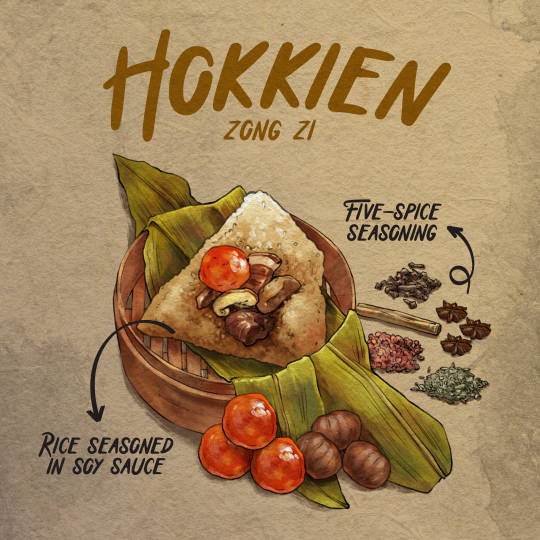
Cantonese Rice Dumpling (广东咸肉粽) - The ingredient that sets Cantonese Zong Zi apart is the filling of mung beans or green beans. One can also order a variation with a salted egg yolk. The glutinous rice is also seasoned with salt and garlic oil instead of soy sauce.
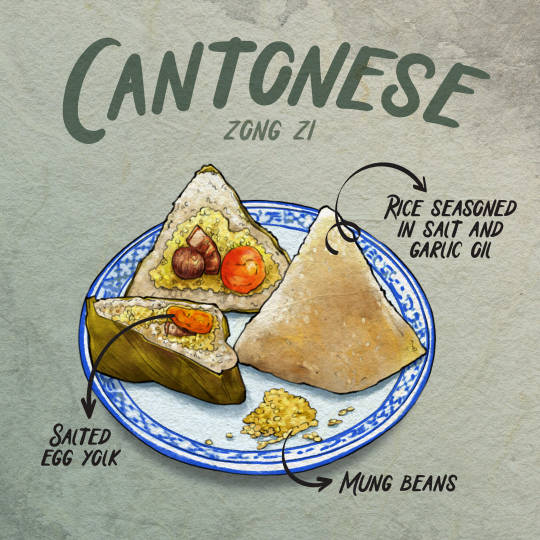
Nyonya Rice Dumpling (娘惹粽) - The Nyonya Zong Zi is the most distinguishable rice dumpling for its bright blue tip that is typically made from the extract of the butterfly pea flower. It is also sweeter in taste and aroma because of its pandan leaf wrapper and candied winter melon.
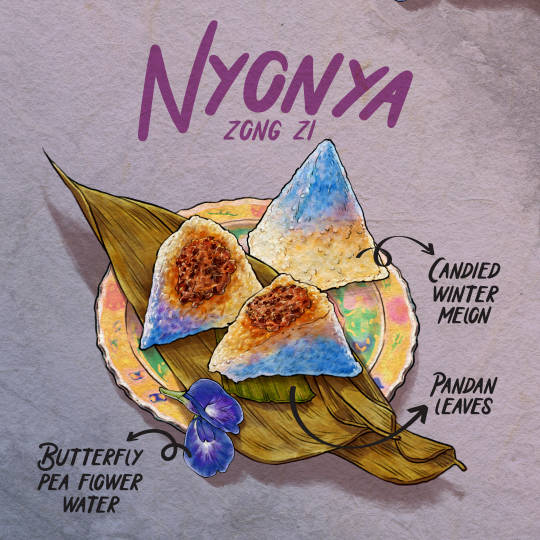
Teochew Rice Dumpling (潮州粽) - The savoury yet sweet taste of a Teochew Zong Zi comes from various ingredients such as red bean paste or lotus paste, fatty pork belly, earthy mushrooms and dried shrimp. Chestnuts are also added to the dumpling for texture.
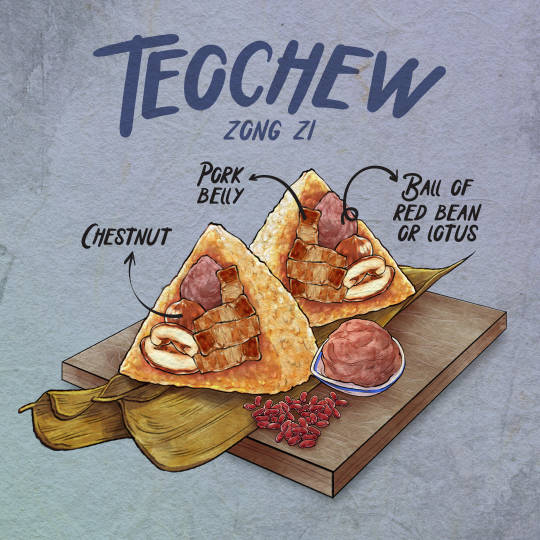
Hainanese Rice Dumpling (海南肉粽) - The Hainanese Zong Zi’s most distinctive trait lies in its portion. It is filled with generous chunks of pork belly, whole chestnuts, mushrooms, and seasonings of savoury additions like five-spice powder, dark soy sauce, and black pepper. It is also usually served with a dollop of palm sugar syrup, adding a nice balance of sweetness to its savoury and slightly spicy flavour.
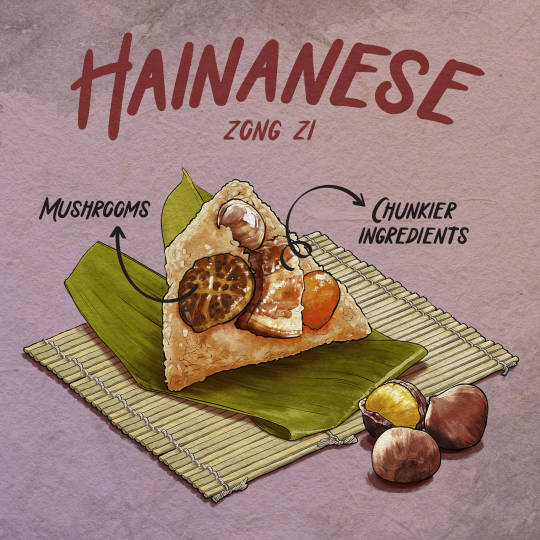
Hakka Rice Dumpling (客家粽) - Steamed in bamboo leaves, the Hakka Zong Zi consists of preserved vegetable filling, juicy pork belly strips and savoury mushrooms. It is also sometimes filled with beans.
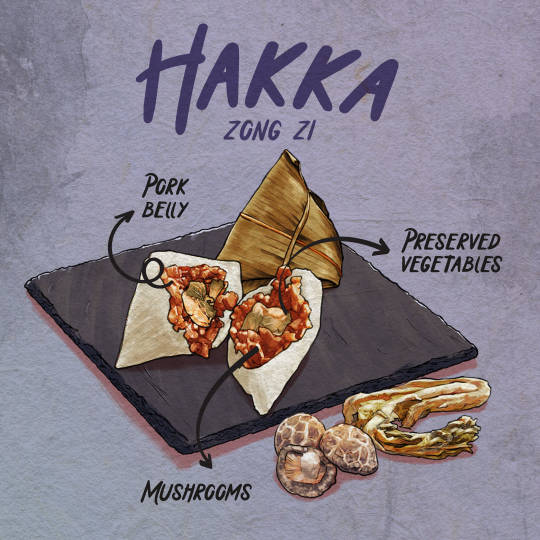
Zong Zi info from here and images from Ministry of Culture, Community and Youth.
#Dragon Boat Festival#端午节#农历五月初五#Rice Dumpling#粽子#Zong Zi#Hokkien Rice Dumpling#福建咸肉粽#Cantonese Rice Dumpling#广东咸肉粽#Nyonya Rice Dumpling#娘惹粽#Teochew Rice Dumpling#潮州粽#Hainanese Rice Dumpling#海南肉粽#Hakka Rice Dumpling#客家粽#Video#Youtube#Asian Food#Food#Buffetlicious
113 notes
·
View notes
Text
Happy Halloween! 🎃

#renheng#blade x dan heng#blade hsr#hsr blade#dan heng#Sesame Dumpling#Sesame Cake#Rice Dumpling#Sesame Mochi#honkai star rail#hsr#halloween
61 notes
·
View notes
Text

We went from 'nowhere to run' to 'nowhere to sleep'.
281 notes
·
View notes
Text

#honkai star rail#hsr#hsr fanart#hsr blade#dan heng#刃#丹恒#sesame cake#rice dumpling#digital art#fanart#I cannot draw cats
67 notes
·
View notes
Text
My babies (and this weird wet kitten I found)

#critter pick is so much fun holy shit#in love with the kitten voicelines and miniquests and the peppy stuff#this event healed my soul#honkai star rail#hsr#hsr blade#wisteria cake#lambda's friend#ice cake#trash cake#rice dumpling#pure sugar child#pink's musings
60 notes
·
View notes
Text
Rice Dumpling Plateau


#yume nikki fangame#ynfg#yume 2kki#urotsuki#rpg maker 2000#32 bit#rice dumpling plateau#aediorugap#rice dumpling#green#snake#green snake#onigiri#sushi#tempura
5 notes
·
View notes
Text










cutiesssssssssssssss 🥹🥹
#hsr#honkai star rail#ruan mei’s creatures#stelle#trash cake#dan heng#rice dumpling#march 7th#ice cake
10 notes
·
View notes
Text

Ka-boom! 💥🍌
#honkai star rail#dan heng#danheng#caelus#trailblazer#sesame cake#rice dumpling#n4391#my art#fanart#chibi#animation#finally a silly TB mission with dan heng... i've been waiting for this...
353 notes
·
View notes
Text
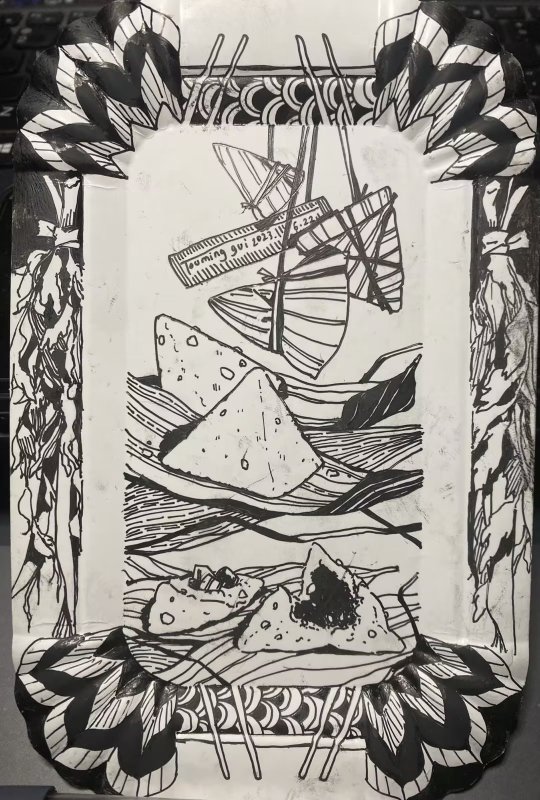
端午节快乐!
#端午节#dragon boat festival#端午節#端午の節句#粽子#rice dumpling#ちまき#painting#art#paint#drawing#artists on tumblr#illustration#绘画#draw#絵
4 notes
·
View notes
Note
"Munya!" Rice Dumpling mewled at Stelle, gazing up at here plaintively. What he wanted, well... no one was sure, were they?
Golden eyed peeked at Rice Dumpling when he made noise at her. She shifted her attention to him and leaned down to lift him into her arms. "Hello." she greeted and bopped noses with him. "Are you hungry ?" she asked "We can go find some yummy stuff to eat." she caught her coat with her free hand.

To her all of the little critters were people to. "Someday I will figure out how to speak to you until than were playing the is it this game. " @reversescale
0 notes
Text

Zongzi Snail
0 notes